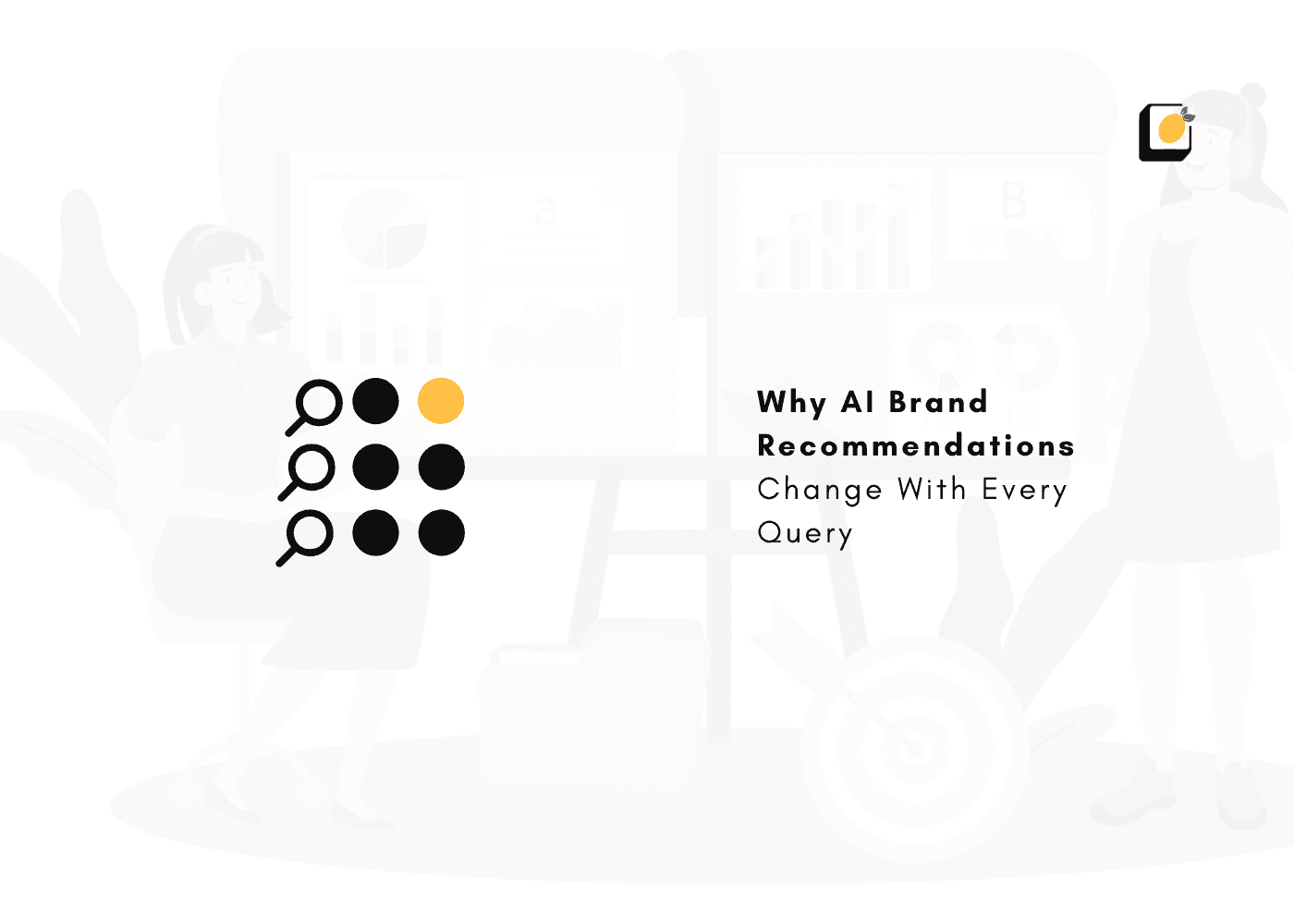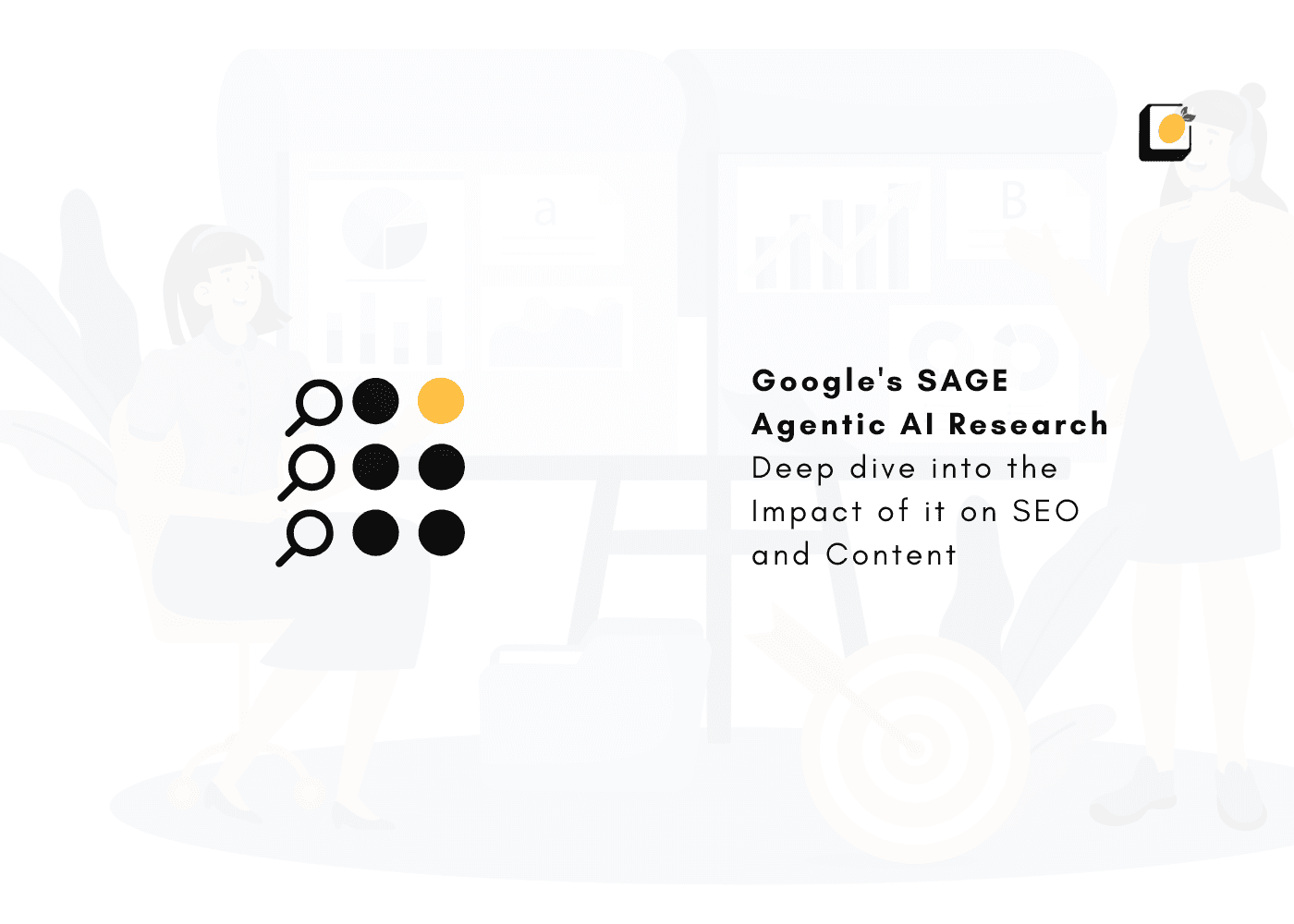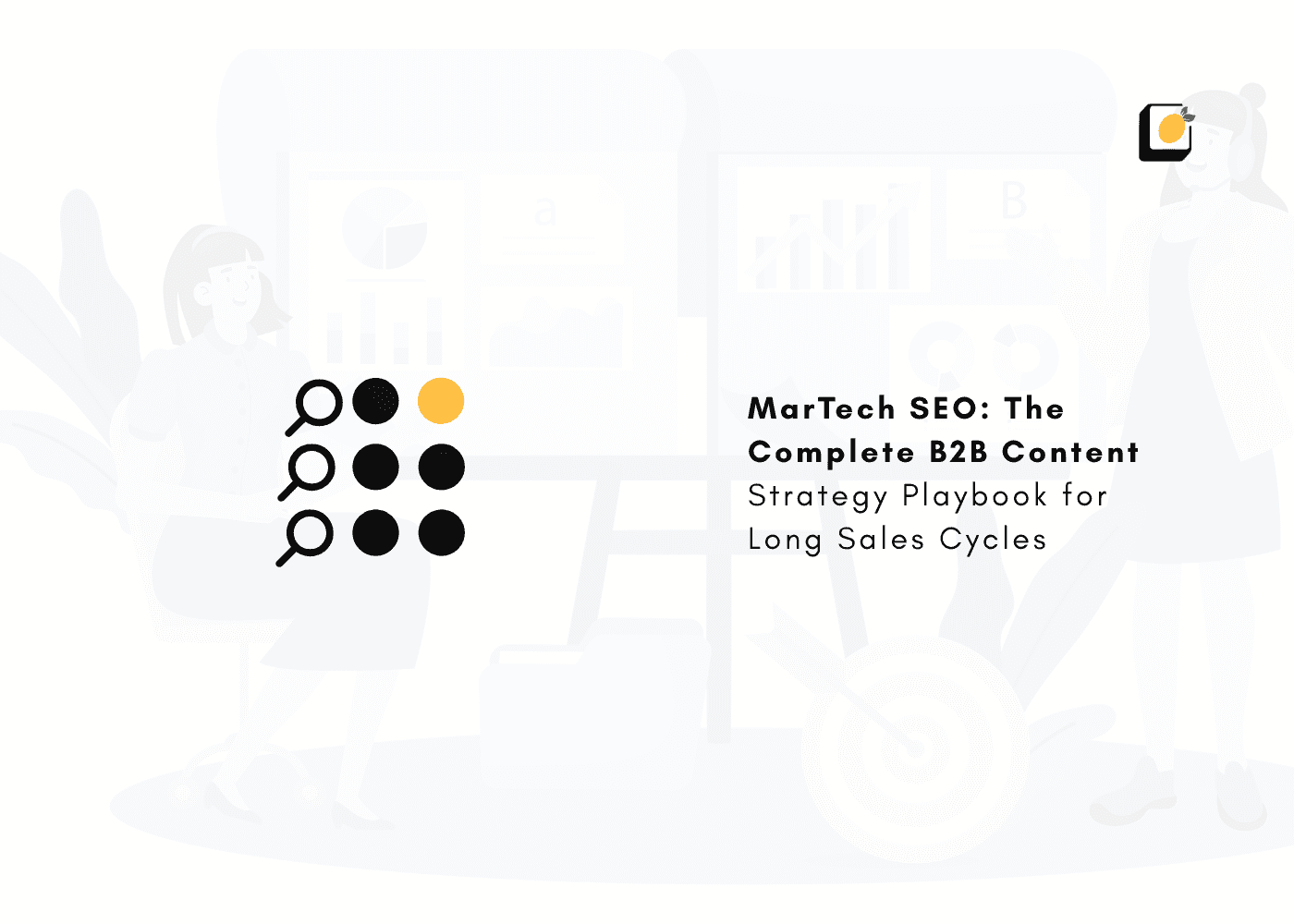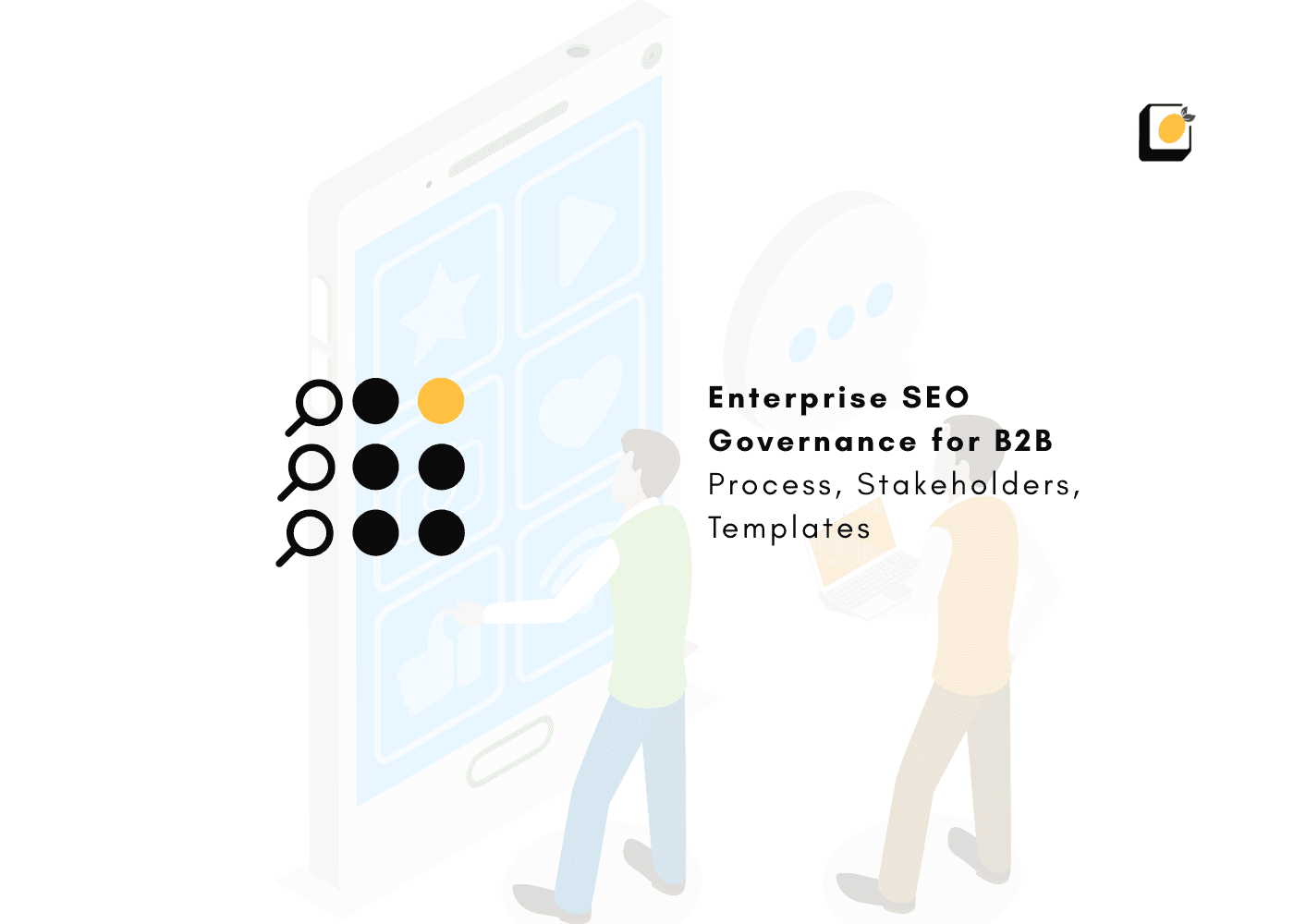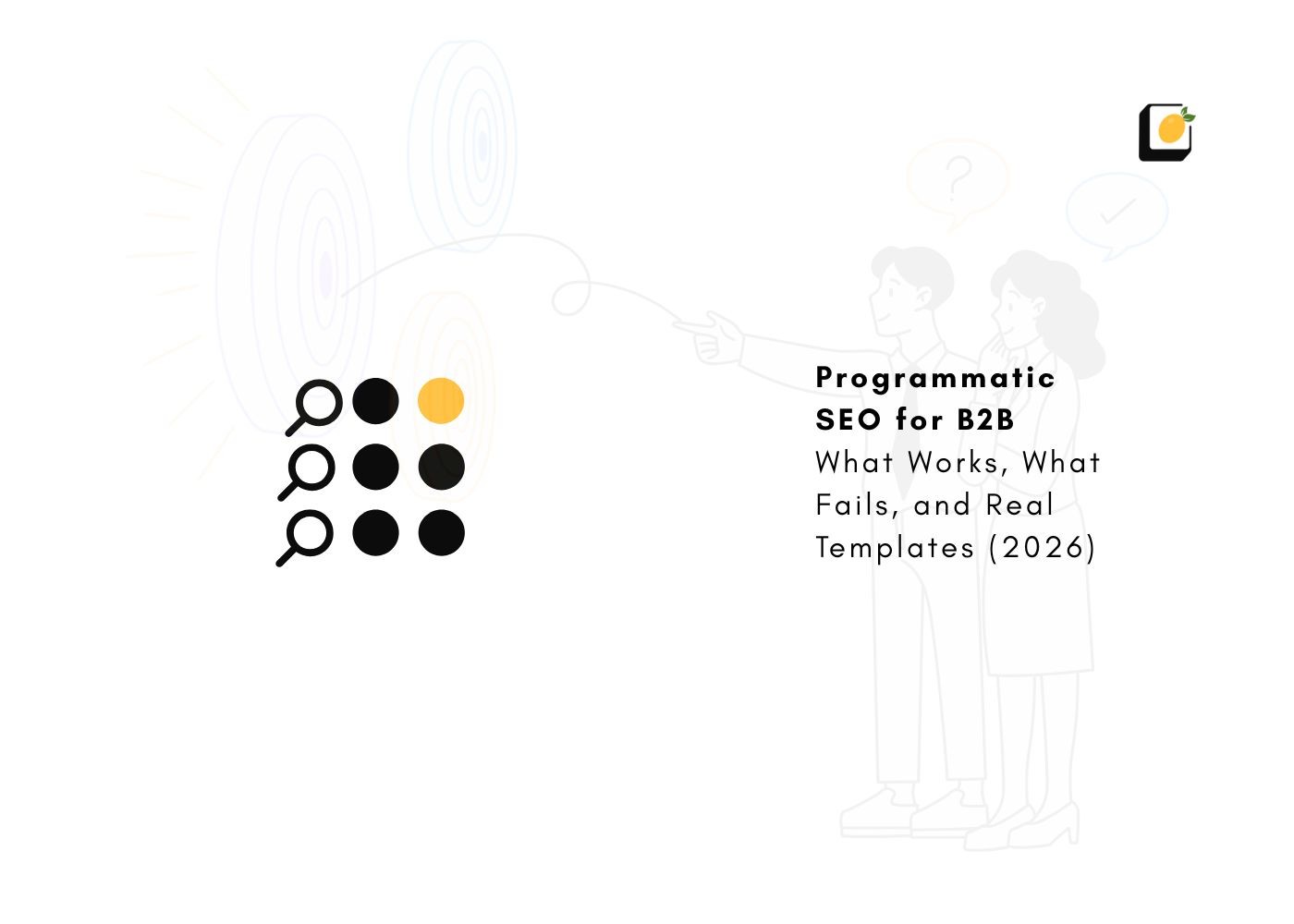What Are Backlinks and Why Are They Crucial for Startups? Best Backlink Strategy for Start-ups
August 20, 2025
Join 500+ brands growing with Passionfruit!
Key Takeaways: Your Startup's Backlink Strategy
Don't Wait for Links. Hope is not a growth strategy. You must actively build your backlink profile. Waiting for websites to find you means you are already losing to competitors who are actively building connections.
Quality Beats Quantity. A single link from a respected, relevant website is more powerful than 100 links from random, low-quality sites. Always focus on earning links from sources that your target audience trusts.
Great Content Is Your Foundation. You cannot build links without having something valuable to link to. Before starting any outreach, create exceptional guides, original research, or helpful tools that solve a real problem for your audience.
Build Relationships, Not Just Links. The best links come from genuine connections. Engage with people in your industry on social media and provide value long before you ask for anything in return. People link to companies and founders they know and respect.
Patience and Consistency Are Required. Link building is a long-term effort. You will not see results overnight. A successful strategy involves consistent, steady effort over many months. Quick wins are rare; sustainable growth is the goal.
Avoid Shortcuts and Risky Tactics. Buying links or using private blog networks will damage your website's reputation with search engines. Stick to ethical, white-hat methods like guest posting and genuine outreach to build a profile that lasts.
Track Your Progress. You need to measure your efforts to know what works. Use tools to monitor new links, watch competitor strategies, and see which of your content pieces earns the most attention.Why Startups Need a Proactive Backlink Strategy
Many startup founders build a great product, create a beautiful website, and then wait. They hope that customers will just show up. They pray that other websites will magically discover them and link to their page.
But hope is not a strategy.
The difference between sitting on page two of Google search results (where you get zero customers) and page one (where you can get thousands) often comes down to one thing: a proactive backlink strategy. Waiting for links to appear is a surefire way to let your competitors get ahead. To win in today's crowded market, you need to actively build your online reputation.
This guide will walk you through exactly why a proactive approach to link building is essential for startup growth. We'll cover the basics of search engine optimization, show you actionable link building techniques, and explain how to build a backlink profile that drives real, sustainable traffic.
Before we dive into strategy, let's cover the basics. In simple terms, backlinks are links from one website to another. Think of them as votes of confidence. When another website links to your startup, they are essentially telling their audience—and search engines like Google—that your content is valuable, credible, and worth checking out.
For a new startup with no brand recognition, these votes are everything. They are a fundamental part of building trust online.
How Backlinks Drive Search Engine Optimization
So, why is backlink so important? Search engines like Google aim to show the most relevant and authoritative results for any search query. While your on-page SEO (keywords, content quality) tells Google what your page is about, backlinks tell Google that your page is important.
A strong backlink profile signals to Google:
Credibility: Other reputable sites trust your content.
Authority: You are a knowledgeable source in your industry.
Relevance: Your content is relevant to the topics of the sites linking to you.
This is the core of how search engine optimization works. More high-quality "votes" lead to higher trust, which leads to better rankings.
The Impact of Website Backlinks on Startup Growth
The benefits of website backlinks go far beyond just SEO rankings. For startups, a good backlink profile directly impacts growth in several ways:
Increased Website Traffic: Higher rankings naturally lead to more organic visitors.
Referral Traffic: People clicking on links from other sites bring direct, often highly qualified, traffic to your page.
Brand Authority: Being mentioned on respected industry blogs or news sites builds your brand's reputation and makes you a recognized voice in your field.
Faster Indexing: When search engines crawl popular websites and find a link to your new site, they discover and index your pages much faster.
A common question founders ask is, do backlinks still matter in 2025? The answer is an absolute yes. While Google's algorithm has become incredibly complex, backlinks remain one of the most powerful signals for determining a website's authority and relevance.
Building a Strong Foundation: SEO for Startups
A successful backlink strategy doesn't happen in a vacuum. It's a critical part of a broader SEO for startups plan. Before you even think about asking for a link, you need a website worth linking to.
Key SEO Strategies Every Startup Should Use
Your foundational SEO strategies should include:
Technical SEO: Ensure your site is fast, mobile-friendly, and secure. A slow or broken site is not link-worthy.
On-Page SEO: Optimize your pages with relevant keywords, compelling titles, and clear meta descriptions. Learn how to create SEO-friendly URLs Content Marketing: Create high-value content that solves your audience's problems. This could be in-depth guides, original research, or free tools. Great content is the foundation of any successful link building effort.
Why a Proactive Backlink Strategy Outperforms Reactive Efforts
A reactive strategy is waiting for links to happen. A proactive backlink strategy is making them happen. When you actively pursue links, you control the quality, relevance, and velocity of your backlink growth.
The most beneficial approach when developing a backlink strategy is to be proactive and content-driven. Create amazing resources that people want to link to, and then strategically reach out to the right people to let them know your content exists. This proactive approach ensures you are building a strong, relevant backlink profile from day one, rather than waiting and falling behind your competitors.
Creating Backlinks That Matter: Tactics for Startups
Not all backlinks are created equal. One link from a major industry publication is worth more than a thousand links from low-quality directories. The goal is creating backlinks that are both relevant and authoritative.
Guest Post Outreach for Quality Backlinks
A guest post is an article you write for another website in your industry. In return for the valuable content, you typically get an author bio with a link back to your website. This is one of the most effective ways to earn high quality backlinks.
A successful guest posting strategy involves:
Finding relevant blogs: Look for sites where your target audience hangs out.
Building relationships: Engage with the blog owner on social media before pitching.
Pitching valuable ideas: Suggest topics that will genuinely help their audience.
Writing exceptional content: Deliver your absolute best work.
Using Link Building Tools to Find Opportunities
While strategy comes first, link building tools can significantly speed up your process. Tools like Ahrefs, SEMrush, or Moz can help you:
Analyze competitor backlinks: See who is linking to your competitors and try to get links from the same sites.
Find guest posting opportunities: Search for blogs that accept guest contributions.
Identify broken links: Find broken links on other sites and suggest your content as a replacement (a technique known as broken link building).
Discover unlinked mentions: Find where your brand is mentioned online without a link and ask for one to be added.
For a deeper dive, explore this guide to SEO tools for startups High Quality Backlinks vs. Quantity
It's tempting to chase a high number of backlinks, but quality is far more important. A single high quality backlink from a trusted, relevant website will do more for your SEO than hundreds of spammy, low-quality links.
What makes a backlink high-quality?
Relevance: The linking site is in your industry or niche.
Authority: The site has its own strong reputation and backlink profile.
Placement: The link is placed naturally within the body of the content.
Anchor Text: The clickable text of the link is relevant to your page.
Always prioritize quality over quantity in your link building SEO efforts.
Link Building Techniques Startups Can Trust
With so many companies offering SEO services, it's important to know which link building techniques are safe and effective, and which to avoid.
Ethical Link Building Services for Startups
If you decide to hire help, look for link building services that are transparent and focus on quality. A good agency will:
Explain their exact methods for acquiring links.
Focus on earning links through content and outreach, not buying them.
Provide detailed reports on the links they've built.
Never promise a specific number of links in a short time.
Be wary of services that offer hundreds of links for a low price. These are almost always low-quality and can harm your site.
Authority Backlinks and Their Role in SEO
Authority backlinks come from highly trusted websites, such as major news publications, university websites (.edu), government sites (.gov), or well-respected industry organizations. These links are the gold standard of SEO.
While difficult to get, even one or two authority backlinks can significantly boost your entire website's credibility in the eyes of Google. You can earn these through:
Publishing original research that gets cited.
Offering scholarships or resources for students.
Becoming a source for journalists through platforms like HARO (Help a Reporter Out).
Avoiding Common Link Building Pitfalls
As you start your link building journey, avoid these common mistakes:
Buying links: This is a direct violation of Google's guidelines and can lead to penalties.
Using Private Blog Networks (PBNs): These are networks of sites built solely to provide links and are easily detected by Google.
Irrelevant outreach: Pitching your startup to a completely unrelated website wastes everyone's time.
Focusing on quantity: You might see claims online like, "How I built 5,660 backlinks in 30 days!" Be very skeptical. These are almost always generated through spammy, automated methods that will hurt your website's reputation in the long run. Real, sustainable backlink building is a marathon, not a sprint. If you acquire bad links, you may even need to learn what disavowing is and how to disavow links
Measuring Success: Backlink Analysis Tools and Metrics
You can't improve what you don't measure. A key part of any proactive strategy is using a backlink analysis tool to monitor your progress and the health of your backlink profile.
How to Track and Maintain Your Backlink Profile
Regularly monitoring your backlink building efforts is crucial. You should track:
Number of Referring Domains: The total number of unique websites linking to you. This is more important than the total number of backlinks.
New and Lost Backlinks: See who has recently linked to you and who has removed a link.
Anchor Text Distribution: Ensure the text used for your links is varied and natural.
Geographic Location of Links: See where your links are coming from.
Best Practices for Ongoing Link Building SEO
Link building SEO is not a one-and-done project. It's an ongoing process that requires consistent effort. Best practices include:
Aim for steady growth: A natural backlink profile grows consistently over time, not in sudden spikes.
Diversify your link sources: Get links from a variety of websites (blogs, news sites, forums, directories).
Build links to multiple pages: Don't just point all your links to your homepage. Build links to important product pages and blog posts too.
Regularly audit your profile: Check for and disavow any toxic or spammy links that may have appeared.
How a Proactive Backlink Strategy Increases Website Traffic
Ultimately, the goal of any SEO effort is to grow your business. A proactive backlink strategy is one of the most effective ways to increase website traffic and attract new customers.
Promoting Your Website with Link Building Agencies
Once your startup has product-market fit and a marketing budget, partnering with reputable link building agencies can help you scale your efforts. A good agency brings expertise, established processes, and industry relationships that can accelerate your growth. When choosing an agency, ask for case studies and be clear about your goals.
Building Backlinks for SEO That Last
The secret to building backlinks for SEO that stand the test of time is to focus on relationships and value. When you create truly helpful content and build genuine connections with others in your industry, you earn links that are not only powerful for SEO but also act as long-term referral sources for your business.
Actionable Insights to Increase Your Startup's SEO Visibility with Backlinks
1. Create One "Link Magnet" Asset Each Quarter
Instead of writing many average blog posts, focus your energy on creating one exceptional piece of content per quarter that naturally attracts links. People rarely link to generic blog posts. A "link magnet" is different.
What to create:
Original Research: Survey people in your industry and publish the unique results.
A Free Tool: Build a simple calculator, template, or checklist that solves a common problem.
A Definitive Guide: Write the most comprehensive, detailed guide on a single, important topic in your niche.
Why this works: A single, high-value asset gives editors and writers a strong reason to link to your site. A free tool or original data is a much easier "ask" when doing outreach than a standard blog post.
2. Use the "Competitor Link Cloning" Method
Your competitors have already done some of the hard work for you. A simple way to find high-quality link opportunities is to see who already links to them.
Your Action Plan:
Use a backlink analysis tool to pull a list of websites linking to your top two or three competitors.
Filter this list for high-quality, relevant websites. Ignore low-quality directories or spammy sites.
Reach out to those high-quality websites. You can say, "I saw you linked to [Competitor's Name]. We offer a similar solution and just published a guide on [topic] that your audience might also appreciate."
Why this works: A website that has already linked to a similar company is pre-qualified. You know they are interested in your industry, making your outreach much more likely to succeed.
3. Master the "Help, Don't Ask" Outreach Technique
Cold emails asking for links have a very low success rate. A better approach is to build a genuine connection before you ever ask for anything.
Your Action Plan (A 2-Week Cycle):
Week 1: Engage. Identify five key people or websites you want a link from. Follow them on social media. Share one of their articles and add a thoughtful comment. Reply to their newsletter with a genuine compliment or question.
Week 2: Provide Value. Find an opportunity to be genuinely helpful. You could suggest a small correction on their site, introduce them to someone who could help them, or answer a question they posted online.
After Providing Value: Make the Request. Once you have established a connection, your request for a guest post or a link to your "link magnet" asset will be received much more warmly.
Why this works: People are far more likely to help someone they know and who has helped them first. You move from being a stranger asking for a favor to a helpful contact in their network.
4. Amplify Your Best Links with Smart Internal Linking
Getting a powerful backlink to one page on your site is great. Using that link to boost your entire website's visibility is even better.
Your Action Plan:
When you earn a high-quality backlink to a specific page (let's call it Page A), immediately edit that page.
From Page A, add two or three internal links pointing to other important pages on your website that you want to rank higher (like your product page or pricing page).
Why this works: A powerful backlink sends "authority" or "link juice" to Page A. By adding internal links, you pass a portion of that authority to other pages, lifting the rankings of multiple pages from a single external link.
5. Focus on Referring Domains, Not Total Backlinks
Many founders get obsessed with the total number of backlinks. A much more important metric for SEO visibility is the number of uniquereferring domains—the number of different websites linking to you.
Your Action Plan:
When you review your backlink analysis, focus on the "Referring Domains" metric. Your goal is to increase this number steadily over time.
Prioritize getting one link from ten different quality websites over getting ten links from the same website.
Why this works: Google sees links from a diverse set of reputable websites as a much stronger signal of authority than many links from just one or two sources. It shows widespread recognition of your startup's value.
Conclusion: The Value of a Proactive SEO and Link Building Approach
Praying for links is not a viable growth strategy. The startups that succeed are the ones that take control of their online reputation. A proactive approach to SEO and link building is a powerful lever for growth, allowing you to build authority, drive targeted traffic, and systematically climb the search engine rankings.
Start today. Create one piece of link-worthy content. Reach out to one relevant blog. The journey from page two to page one begins with a single, proactive step.
Ready to build a backlink strategy that drives real growth? Get started with Passionfruit's AI-powered platform to streamline your content creation and outreach efforts.
Frequently Asked Questions about Backlink Strategy
1. What is the best type of backlink for a startup? The best backlink is one from a highly relevant, authoritative website within your specific industry. A link from a major blog in your niche is more valuable than a generic link from a site with high but irrelevant authority.
2. How many backlinks do I need to rank on page one? There is no magic number. It depends entirely on your industry's competitiveness. Analyze the backlink profiles of the top-ranking pages for your target keywords to get a realistic benchmark.
3. What is a realistic monthly goal for building backlinks? For a new startup, aiming for 3-5 high-quality, relevant backlinks per month is a great and sustainable goal. Consistency is more important than hitting a large number in a single month.
4. Should I focus on content creation or link building first? Content comes first. You need to have valuable assets on your website before you can ask anyone to link to them. Create a few exceptional pieces of content, then begin your link-building outreach.
5. How long does it take for a new backlink to impact my rankings? It can take anywhere from a few days to several months for Google to discover a new link, assess its value, and adjust your rankings accordingly. SEO and link building are long-term strategies, so patience is key.
Proactive Backlink Strategy Checklist for Startups
Phase 1: Getting Your House in Order (Foundation)
Website Health
[ ]Confirm your website loads in under 3 seconds.[ ]Make sure your site works perfectly on mobile phones.[ ]Fix all broken links and technical errors on your site.[ ]Ensure your page titles and descriptions are clear and compelling.
Content Creation
[ ]Create at least two pieces of "link-worthy" content. Examples include a comprehensive guide, original industry data, or a free tool.[ ]Make sure your homepage clearly explains what your startup does.[ ]Write a compelling "About Us" page that tells your story.
Phase 2: Starting Your Outreach (Active Link Building)
Finding Opportunities
[ ]List 10 websites where your ideal customers spend time.[ ]Use a backlink tool to see who links to your top 3 competitors.[ ]Search for blogs in your niche that accept guest posts.[ ]Identify 5-10 older, relevant articles on other sites that you could improve upon.
Taking Action
[ ]Pitch a valuable guest post idea to 3 relevant blogs.[ ]Find one broken link on an industry site and suggest your content as a replacement.[ ]Share your best content on social media and tag any relevant influencers or companies.[ ]Answer a question on Quora or Reddit and link to your content if helpful.
Phase 3: Scaling and Maintaining (Ongoing Strategy)
Monitoring Your Profile
[ ]Set up alerts to notify you of new links to your site.[ ]Check your backlink profile monthly for any spammy or toxic links.[ ]Track your rankings for your main keywords to see the impact of your efforts.[ ]Monitor mentions of your brand that do not include a link and ask for one.
Staying Consistent
[ ]Set a realistic monthly goal, such as earning 3-5 high-quality links.[ ]Dedicate a few hours each week to relationship building and outreach.[ ]Publish new, link-worthy content at least once a month.[ ]Regularly update your most important content to keep fresh.
What to Avoid at All Costs
[ ]Never pay directly for a link placement.[- ]Do not engage in reciprocal "you link to me, I'll link to you" schemes.[ ]Avoid getting links from sites completely unrelated to your industry.[ ]Steer clear of services promising hundreds of links for a cheap price.


